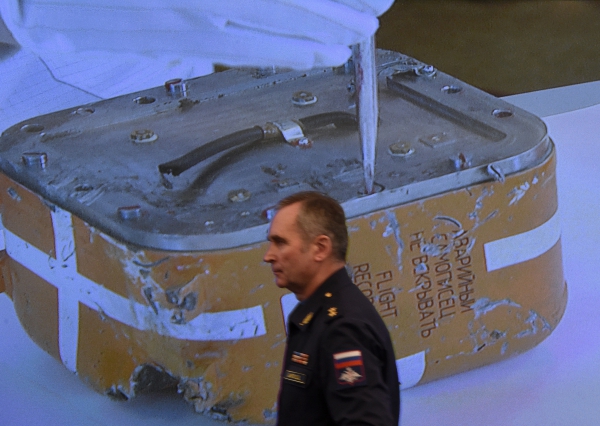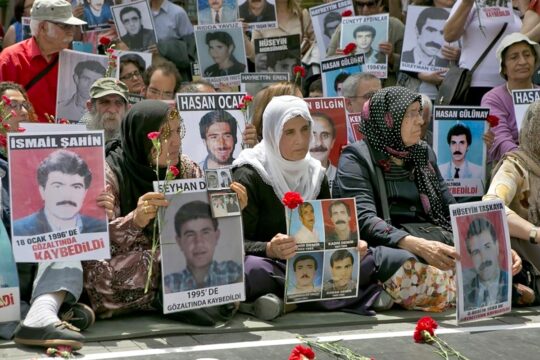In the mid- nineteenth century, German writer and politician Ludwig von Rochau coined the term Realpolitik to describe the clash between the Age of Enlightenment’s aspirations for progress and the power play between the new nation-States. A century and a half later, we are entering the age of “Realjuridik”, a new reality where talk of human rights, development and international justice clashes with the power play between countries. For States, Realjuridik is the art of legitimizing their version of history whilst preserving their own interests as much as possible during a conflict or crisis. By practising Realjuridik, States try to impose their version of facts on the public by designating victims and war criminals, using the terms of international humanitarian law.
Recent relations between Russia, Turkey and Israel provide a classic example of each one using Realjuridik. The political crisis between Moscow and Ankara has taken the form of a bill submitted to the Russian parliament to sanction the Armenian genocide. It took a Russian plane slipping out of Syrian airspace and being shot down by a Turkish missile, and heated exchanges between Vladimir Poutine and Recep Erdogan before a presidential party member of the Russian parliament suddenly felt the need to criminalize Turkish genocide denial. Only a year ago, the two heads of State were enjoying the best of relations and nobody in the Douma was interested in the Armenian genocide of 1915.
Turkey, put on the defensive by Russian economic sanctions including supplies of gas, has recently effected a rapid rapprochement with Israel. This is a welcome development for Israel which wants markets for the huge gas reserves recently discovered off its shores. This convergence of interests nevertheless faced a big obstacle, that is, the appalling state of their relations since May 31, 2010. That was the date of an Israeli raid on the Mavi Marmara, the ship of a Turkish NGO that was part of a humanitarian flotilla seeking to break Israel’s blockade of Gaza. The Israeli raid, which took place in international waters, left ten Turkish citizens dead on the Mavi Marmara.
Never had so many commissions of inquiry and reports been commissioned as in the wake of this violent incident. Hallmark of the post-Cold War era, the diplomatic crisis between Israel and Turkey took the form of a judicial battle. Each commission of inquiry reflected the point of view of the party that commissioned it, endorsing the version of events put forward by the Turkish government or Israeli government. Thus a commission of inquiry set up by the UN Human Rights Council at the request of some 30 mainly developing countries, supported by China and Russia, concluded that Israeli soldiers had killed intentionally and committed acts of torture and had therefore seriously violated international humanitarian law. But the Palmer report, commissioned by the UN Secretary General under pressure from the US, says – unlike the UNHRC report – that the Israeli blockade was legal. It says Israel’s decision to seize the boat by force was “excessive and unreasonable” and that the loss of life was “unacceptable” but that the Israeli soldiers had met with “organized and violent resistance” from some of the passengers.
The Turkish authorities set up their own commission of inquiry which in 2012 denounced numerous violations of international humanitarian law committed by Israeli authorities during the Mavi Marmara incident. Also in 2012 Turkish judges, confirming the findings of that report, sentenced four Israeli army leaders to a cumulative total of 18,000 years in jail for murder and acts of torture committed in the raid. As for Israel, it set up a semi-international commission, the Turkel Commission that took its name from a former member of the Israeli Supreme Court, which concluded that the Israeli soldiers used force in self-defence and acted in accordance with international law.
So not surprisingly each report endorsed the point of view of the commissioning party with regard to international law. Now Russian sanctions and economic necessity are working in favour of rapprochement between Israel and Turkey, so legal battles through inquiry commissions and courts has become redundant and counterproductive. Negotiations between Ankara and Jerusalem have not yet concluded, but they are well advanced. The Israeli Prime Minister has apologized for the flotilla episode and Israel is to pay 20 million dollars into a reparations fund for the Mavi Marmara victims. Discussions are also under way to ease the Gaza blockade. Breaking the blockade was one of Turkey’s demands and one of the objectives of the humanitarian flotilla in 2010. For their part, the Turkish authorities are promising to end all judicial action against Israelis in connection with this incident, and the 18,000 years in jail ordered by Turkish judges are suddenly forgotten. Discussions are under way on building a pipeline under the sea linking the two countries. Realjuridik can be adjusted when national interests are at stake.







